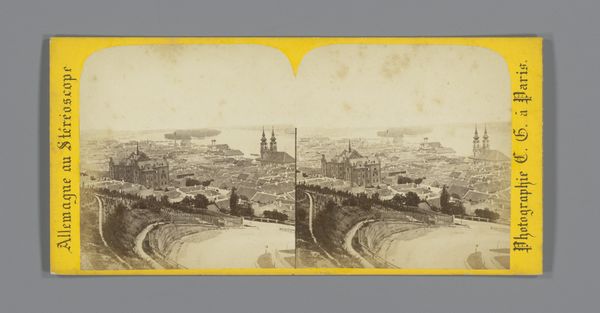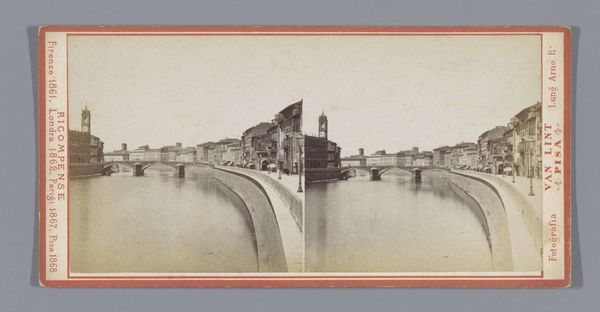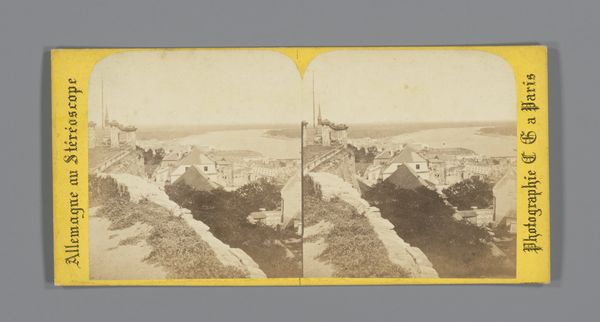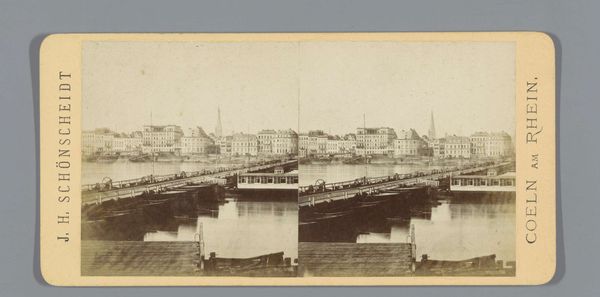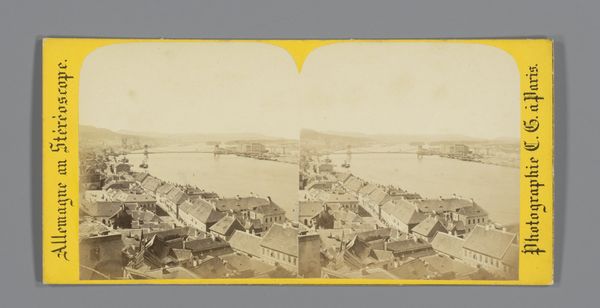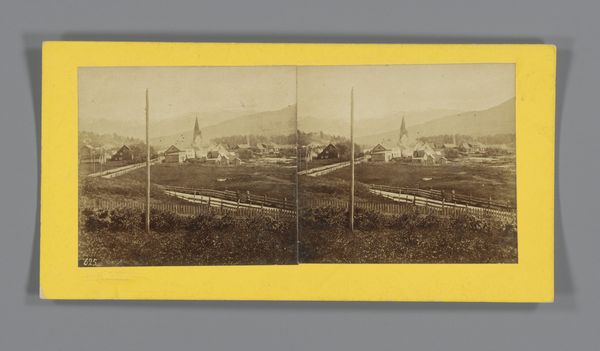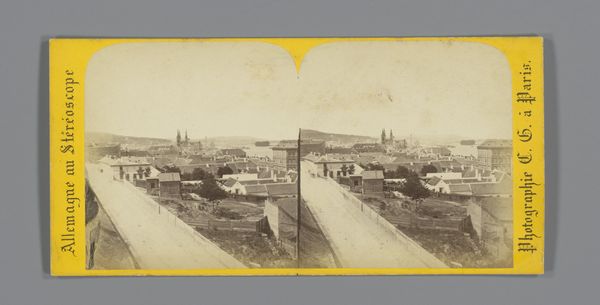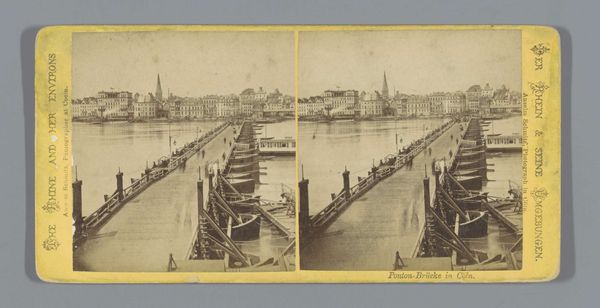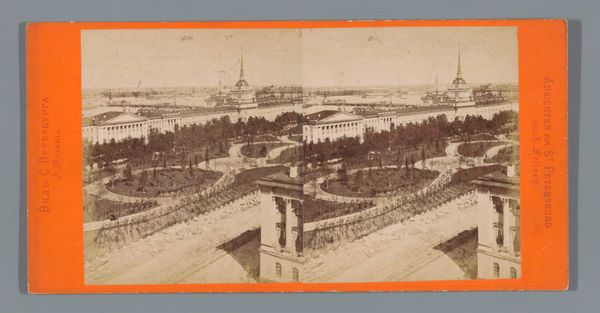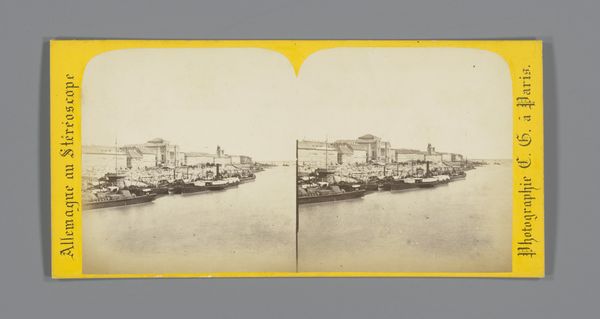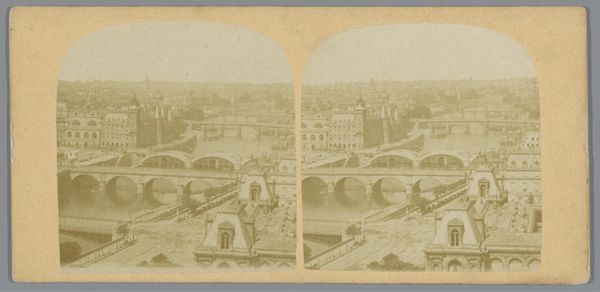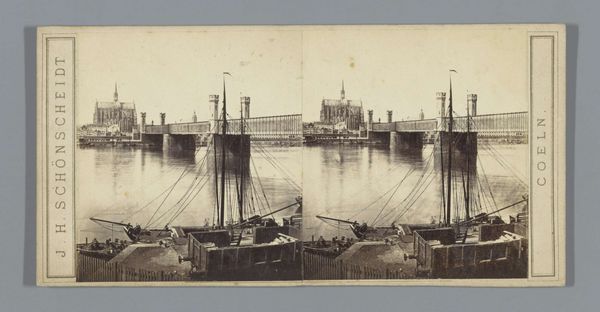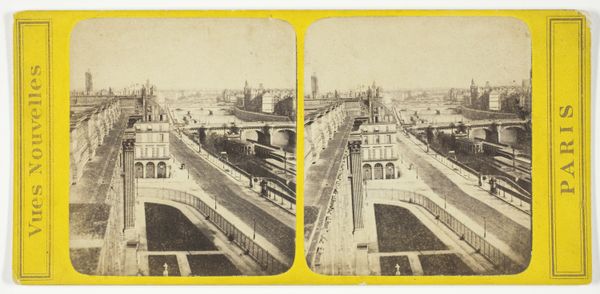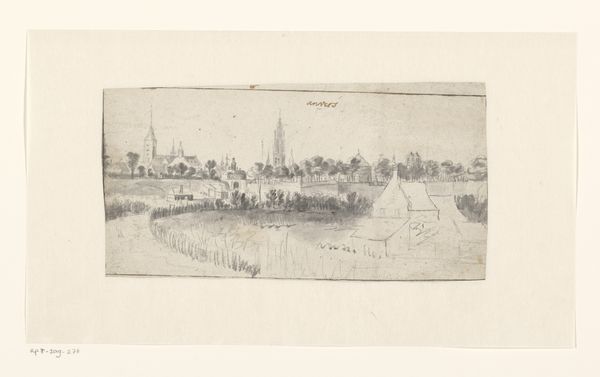
Gezicht op een kade te Keulen met op de achtergrond de Sint-Kunibertkerk c. 1860 - 1870
0:00
0:00
photography
#
16_19th-century
#
landscape
#
photography
#
cityscape
#
realism
Dimensions: height 85 mm, width 170 mm
Copyright: Rijks Museum: Open Domain
Editor: So, we have Anselm Schmitz's "View of a Quay in Cologne with the St. Kunibert Church in the Background," a photograph dating from around 1860 to 1870. I’m struck by how modern the composition feels, with its focus on the industrial elements rather than just the picturesque church. What's your read on this piece? Curator: What intrigues me most is understanding photography's place within the visual culture of the 19th century. This wasn't just a neutral record. How did it compete with painting, for example, and shape public perceptions of urban life? Schmitz highlights a specific point in Cologne’s economic and social development, doesn't he? A photograph like this helped to formulate new public spaces. What elements do you observe in the photograph indicating change? Editor: Well, you see the industry along the quay. And what about those tracks, do they indicate it has railways? I also noticed how sharp the lines are between structures, making it easy for the viewer. How does the framing impact this perception? Curator: Exactly! These details become symbolic of progress, captured, consumed, and then disseminated widely via photograph. Now think about who was seeing this image. Middle-class consumers were drawn to the allure of a modernising world but it was carefully presented, don't you think? Editor: Absolutely, a carefully mediated reality. I guess I hadn’t fully considered the politics inherent in even what appears to be a straightforward cityscape photograph. It's really thought-provoking to see it as an active participant in shaping public perception. Curator: Indeed. This reminds us that photographs never simply mirror reality; they actively construct it, particularly in relation to socio-economic contexts and cultural power dynamics.
Comments
No comments
Be the first to comment and join the conversation on the ultimate creative platform.
